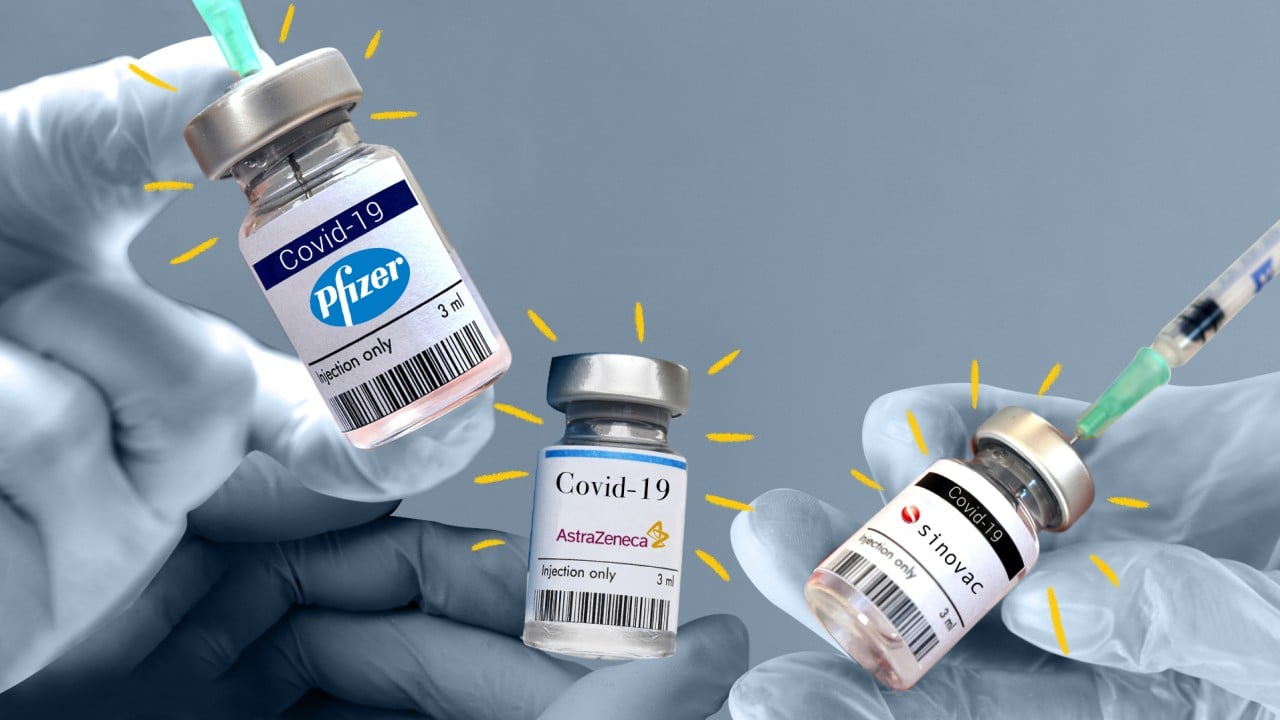
Pfizer coronavirus vaccine reduces transmission after one dose, UK study finds
- Researchers found a fourfold decrease in the risk of asymptomatic Covid-19 infection among health workers who have been jabbed for more than 12 days
- Earlier, a key Israeli study showed that two doses of the Pfizer shot cut symptomatic cases by 94 per cent across all age groups
Researchers analysed results from thousands of Covid-19 tests carried out each week as part of hospital screenings of health care staff in Cambridge, eastern England.
“Our findings show a dramatic reduction in the rate of positive screening tests among asymptomatic health care workers after a single dose of the Pfizer-BioNTech vaccine,” said Nick Jones, an infectious diseases specialist at Cambridge University Hospital, who co-led the study.
After separating the test results from unvaccinated and vaccinated staff, Jones’ team found that 0.80 per cent tests from unvaccinated health care workers were positive.
Pfizer testing third dose of Covid-19 vaccine to guard against strains
This compared with 0.37 per cent of tests from staff less than 12 days post-vaccination – when the vaccine’s protective effect is not yet fully established – and 0.20 per cent of tests from staff at 12 days or more post-vaccination.
The study and its results have yet to be independently peer-reviewed by other scientists, but were published online as a preprint on Friday.
This suggests a fourfold decrease in the risk of asymptomatic Covid-19 infection among health care workers who have been vaccinated for more than 12 days, and 75 per cent protection, said Mike Weekes, an infectious disease specialist at Cambridge University’s department of medicine, who co-led the study.

09:50
SCMP Explains: What's the difference between the major Covid-19 vaccines?
The level of asymptomatic infection was also halved in those vaccinated for less than 12 days, he said.
“This is great news – the Pfizer vaccine not only provides protection against becoming ill from Sars-CoV-2, but also helps prevent infection, reducing the potential for the virus to be passed on to others,” Weekes said. “But we have to remember that the vaccine doesn’t give complete protection for everyone.”
Key real-world data published on Wednesday from Israel, which has conducted one of the world’s fastest roll-outs of Pfizer’s Covid-19 vaccine, showed that two doses of the Pfizer shot cut symptomatic cases by 94 per cent across all age groups, and severe illnesses by nearly as much.

